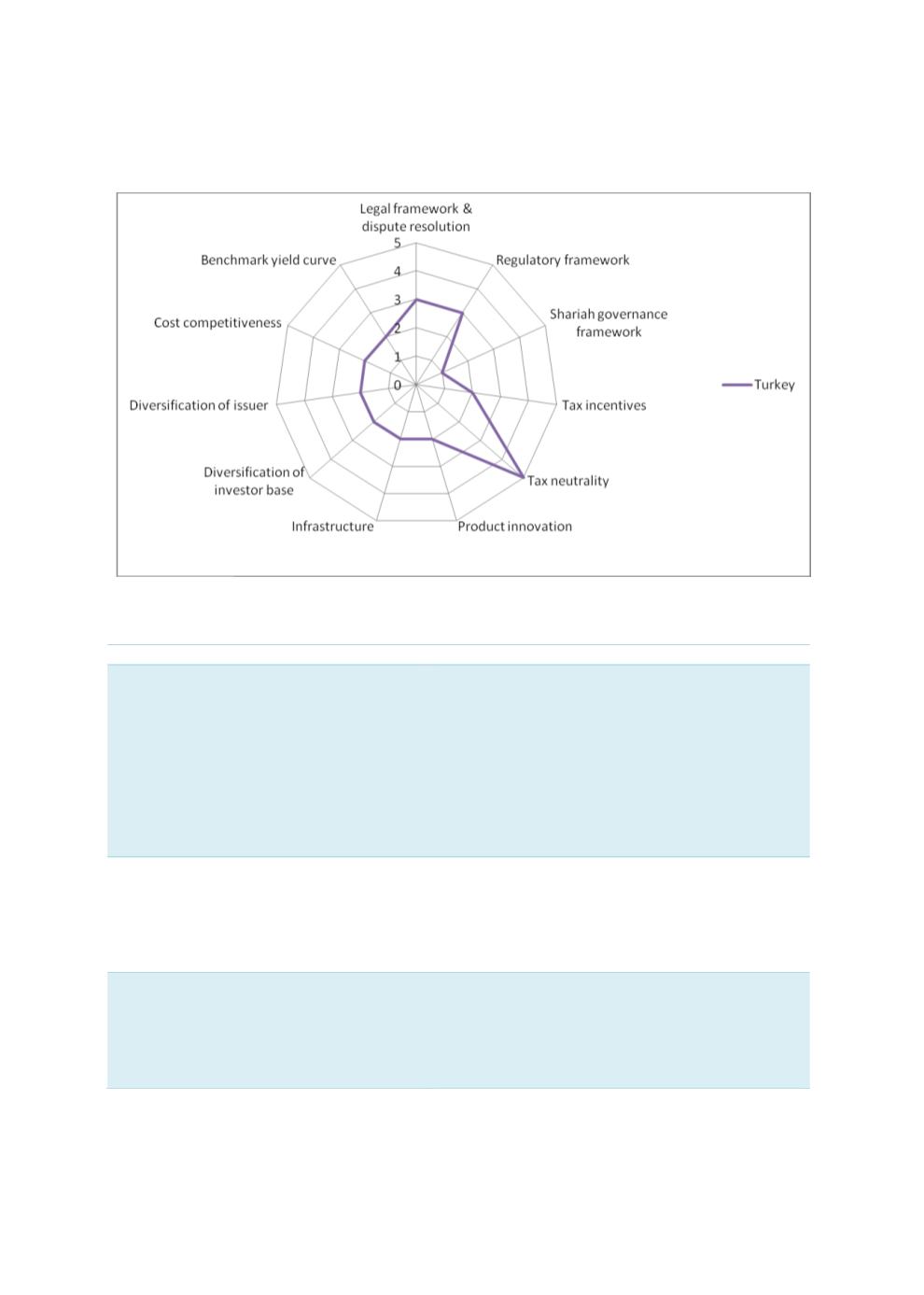

154
Chart 4.52: Factors Influencing the Development of Turkey’s Sukuk Market
Sources: RAM, ISRA
Table 4.25: Recommendations to Improve Demand (Buy Side) – Medium-Term Solutions
Issues and challenges
Demand (buy side) opportunities
Capital market intermediation remains
insignificant.
Macroeconomic instability (i.e. volatility of local
currency, high inflation rate) have led to households
investing their savings intangible assets (e.g. gold,
real estate) and FCY.
The Government plays a pertinent role in building
institutional funds. Concerted efforts should be
undertaken to develop wealth within the domestic
financial system, which will take time considering
the current market conditions.
Bonds issued have average maturities of
between 3 and 5 years.
Capital markets allow intermediation of long-term
funds to match the need for long-term financing.
Identifying suitable candidates from among SOEs or
GLCs to finance project-based sukuk can provide
the necessary benchmark yield curves to support
other corporate issues.
Retail investors prefer to invest in gold
and real estate.
Encourage the government, SOEs and corporates to
issue retail sukuk linked to infrastructure projects.
Establish new products to tap Turkey’s religious
funds (hajj fund, zakat, waqf) with financing linked
to direct financing of the government’s
infrastructure projects.
















